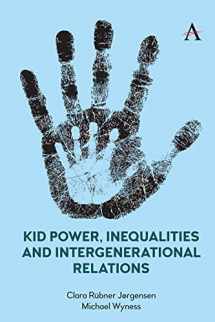
Kid Power, Inequalities and Intergenerational Relations
Book details
Summary
Description
Contemporary understandings of inter-generational relations assume that the balance of power has shifted from adults towards children in recent years. The rise of children's rights, the trend towards more child centred pedagogies and practices within schools and the incorporation of children within a global free market as consumers have all been interpreted as the loss of adult power and the consequent growth of kid power.
This book critically examines these ideas and reframes the zero-sum conceptions of power implicit within these assumptions. It draws on Lukes' three dimensions of power and Foucault's theory of power and knowledge in advancing the view that kid power is inter-generational, multi-dimensional and distributed variably across the child population. The book illustrates this theory through selected themes, including children's political activism with respect to climate change, the varied roles that children play within their families as mediators, the involvement of children in research and the rise of digital kid power.
In a post-script, the theory of kid power within the current context of the global Covid-19 pandemic is examined. This final part of the book questions what the impact of the virus will be on the different manifestations of kid power and considers the implications of lockdowns and potential long-term social distancing measures for inequalities, inter-generational relations and our interpretation of kid power.


We would LOVE it if you could help us and other readers by reviewing the book
Book review



